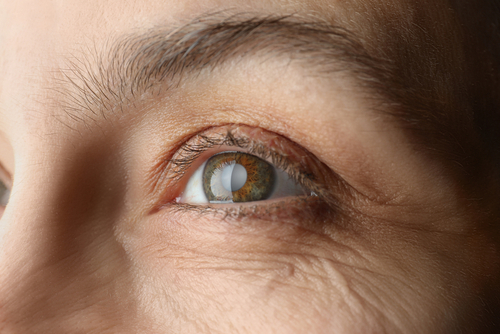Cataracts
Cataracts typically occur as a result of aging and can cause numerous visual symptoms, including blurry vision and increased glare. At Vision Care Center, our cataract surgeons are dedicated to helping you get back to things you love by restoring your vision through cataract surgery!
What Are Cataracts?

A cataract occurs when the natural lens inside the eye becomes cloudy. As you age, changes inside the transparent natural lens inside your eyes cause proteins to break down and clump together, which results in cloudiness.
In the early stages, cataracts may not cause significant visual symptoms or issues. However, over time, the cataract will worsen, making it harder to see, dulling colors, and blurring your vision.
Although cataracts typically develop gradually, in some cases, they can develop suddenly. Cataracts can also occur in one or both eyes.
Since everyone will develop cataracts if they live long enough, cataract surgery is very common and is a very technologically advanced surgery. While no surgery is without risk, cataract surgery is safe and effective. At Vision Care Center, our cataract surgeons, Dr. Russell Harral and Dr. Alyssa Wenger have the experience and expertise needed to restore your vision through cataract surgery.
What Are the Most Common Symptoms of Cataracts?
Since everyone’s eyes are different, not everyone will experience the same cataract symptoms. If you notice any changes to your vision, it’s best to visit your eye doctor to determine the cause.
Some of the most common symptoms of cataracts are:
- Cloudy or blurry vision
- Glare and halos around lights
- Light sensitivity
- Colors appearing faded
- Poor night vision
- Frequent changes in your eyeglasses or contact lenses
Since cataract symptoms can also signify other eye conditions, it’s essential to visit your eye doctor if you notice any of these symptoms.
What Happens During Cataract Surgery?

Modern-day cataract surgery technique is routinely performed with no stitches necessary, through very small incisions using a process known as phacoemulsification during which the cataract is broken up and removed from the eye using an ultrasonic probe.
After the cataract is removed, your cataract surgeon is ready to implant an artificial intraocular lens. Your eye doctor will help you decide which lens is best for you prior to cataract surgery based on your eyes, your lifestyle, budget, and vision goals.
What IOL Options Are Available at Vision Care Center?
Prior to your cataract surgery, your eye doctor will help you choose an intraocular lens (IOL) to replace your natural lens. At Vision Care Center of Northeast Arkansas, both Dr. Harral and Dr. Wenger have removed thousands of cataracts and have some of the most extensive experience in Arkansas.
The technology available to you in an artificial lens continues to advance. Your experienced surgeon will help you decide the type of lens that is best for your eye and your vision goals. In general, lenses to choose from include monofocal lenses, multifocal lenses, and toric lenses.
Monofocal
If you choose a monofocal IOL, it will only correct vision for one distance. Most people who pick this type of lens choose to select good distance vision without glasses. This means you still need to wear glasses for certain activities like reading a book, looking at your phone, or working on a computer.
Monofocal lenses are considered standard and are typically covered by insurance, including Medicare. If wearing glasses for certain activities does not bother you, and you are interested in choosing a lens that doesn’t cost you extra but will still allow you to live without cataract symptoms, a monofocal lens may be best for you.
Multifocal
Multifocal IOLs are premium lenses that can reduce or eliminate your need for visual aids like glasses after cataract surgery. Multifocal lenses allow you to see things far away and up close without glasses for many different activities. At Vision Care Center, we offer multiple types of multifocal lenses and again your surgeon can help you decide what will meet your goals the best.
Toric

Toric IOLs are lenses that are specifically designed to correct astigmatism. Astigmatism occurs when the cornea or lens inside the eye is irregularly shaped, resulting in blurred vision.
Toric lenses are available as both monofocal lenses and multifocal lenses.
If you are having trouble with your vision, schedule an appointment at Vision Care Center in Jonesboro, AR today! Our doctors can help you determine the cause of your vision problems, and if you do need cataract surgery they will walk you through the process of selecting an IOL best suited for you to help you achieve your vision goals.
